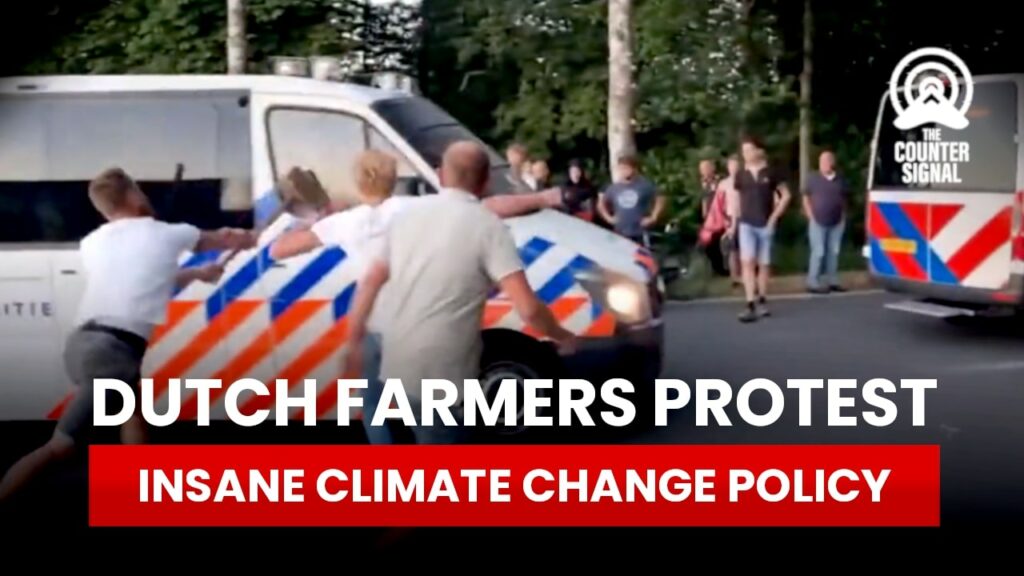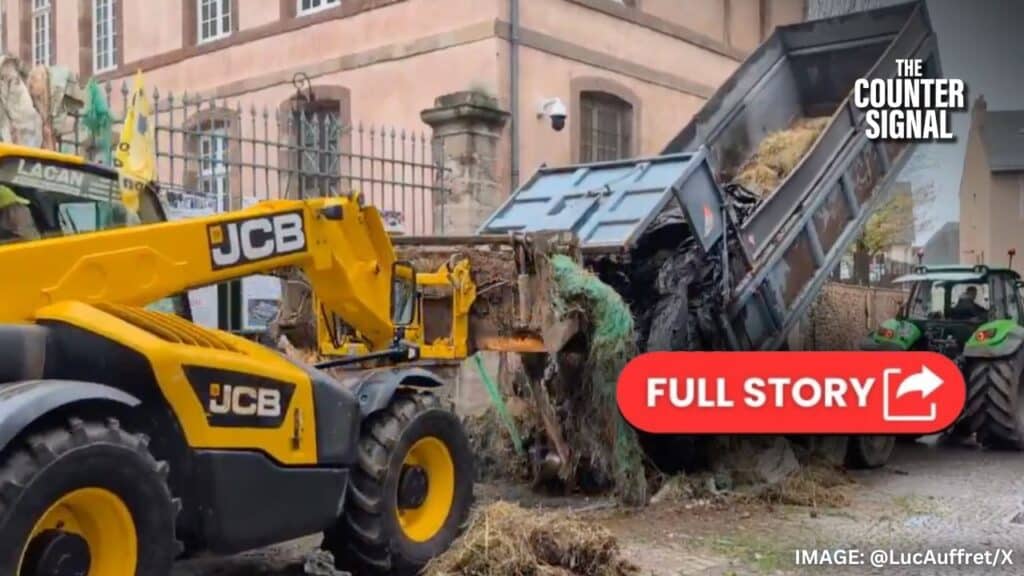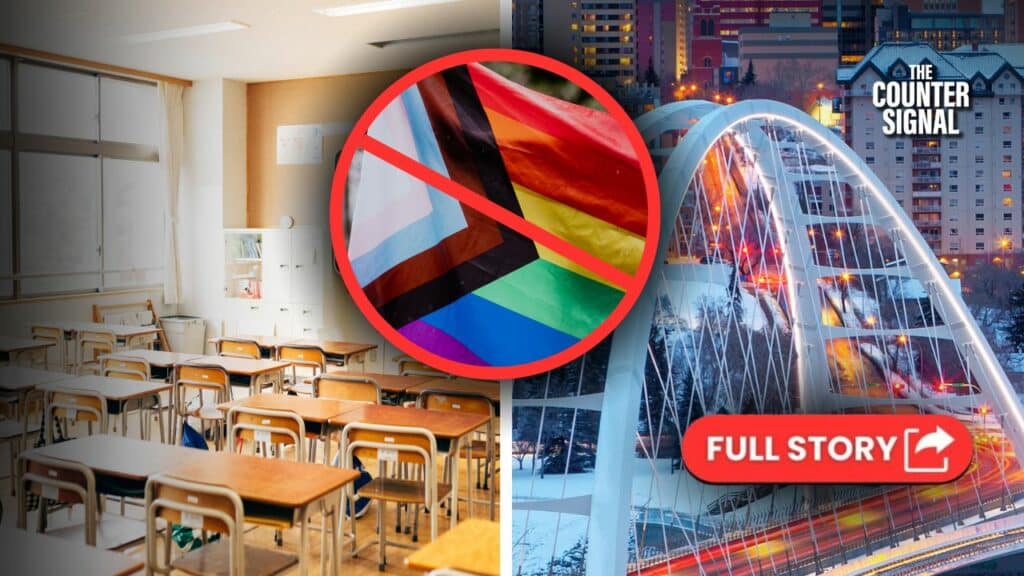Dutch farmers are fighting for their very livelihoods, taking to the streets over a climate change policy that will cap nitrogen emissions and lead to mass job loss.

Video shows several farmers on the streets attacking police and emergency vehicles with sledgehammers while others chase the vehicles down and launch kicks against the windows.
Dutch farmers have been protesting in the streets for days against the government’s plan to target the livestock sector with nitrogen emission cuts.
— Marie Oakes (@TheMarieOakes) June 29, 2022
The Dutch government said “The honest message… is that not all farmers can continue their business,”.
pic.twitter.com/ydNI3vgmEd
In another video, farmers, who brought their own tractors, can be seen outside the Minister for Nitrogen and Nature policy’s house spraying what appears to be manure on the house and police vehicles while other protesters attempt to flip a car.
Dutch farmers protesting outside the home of the Minister for Nitrogen & Nature Policy against the govts plan to target the livestock sector with nitrogen emission cuts.
— Marie Oakes (@TheMarieOakes) June 29, 2022
The plan could see up to 30% reduction in livestock farming & farms out of business. pic.twitter.com/0C8hjLQJWn
According to Bloomberg, yesterday, several farmers also brought their cows to parliament to protest the policy, going so far as threatening to slaughter them on the spot.
“If the nitrogen measures are adopted, one of these two ladies [cows] will not go home but will receive a one-way ticket to the slaughterhouse,” farmer Koos Cromwijk told Dutch news agency ANP outside parliament.
The policy in question will require Dutch businesses to reduce nitrogen emissions nationwide by 50% and up to 95% in some provinces by 2030, with cows and fertilizers being significant contributors.
“The honest message … is that not all farmers can continue their business,” a government statement reads.
The agriculture industry isn’t the only one being targeted, though — aviation has also come under fire.
According to Climate Change News, by the end of 2023, Schipol airport, one of the busiest in Europe, will be forced to limit annual flights to accommodate just 440,000 passengers (12% less than the number of flights in 2019).
“This is a difficult message for the aviation sector that is still recovering from the far-reaching consequences of the coronavirus pandemic,” said transport minister Mark Harbers.
Climate change activists are, of course, thrilled by the developments, with Greenpeace calling the cap on airport traffic a “historic breakthrough.”
“It is good that the Cabinet realizes that Schiphol has, for years, been flying beyond all boundaries when it comes to noise, nitrogen, ultrafine particles and the climate,” Greenpeace activist Dewi Zloch said in a statement.












